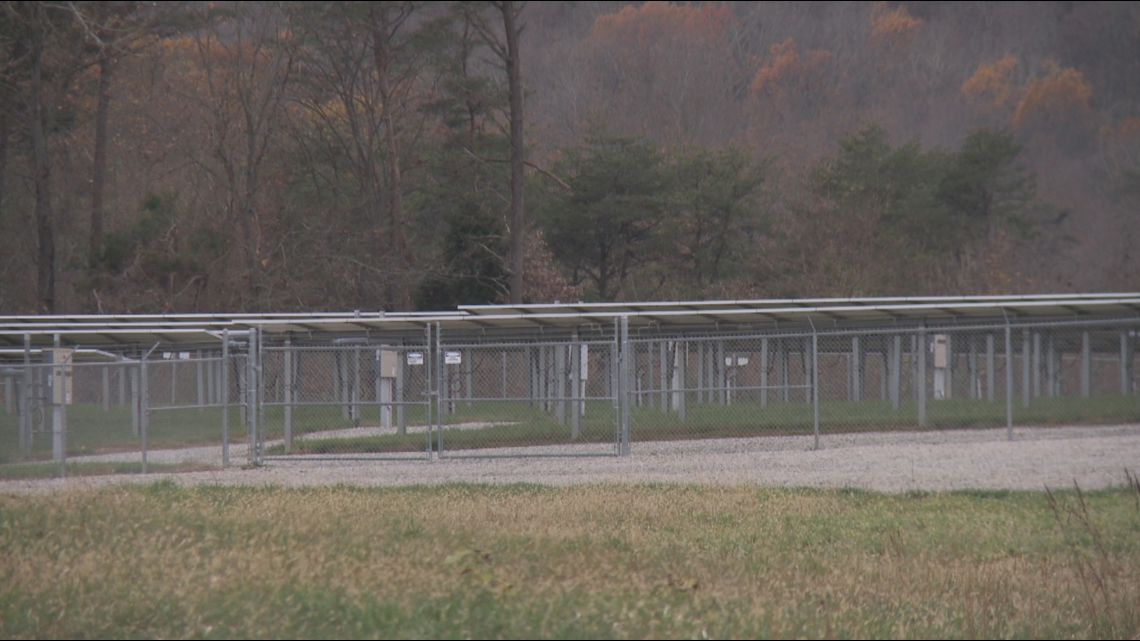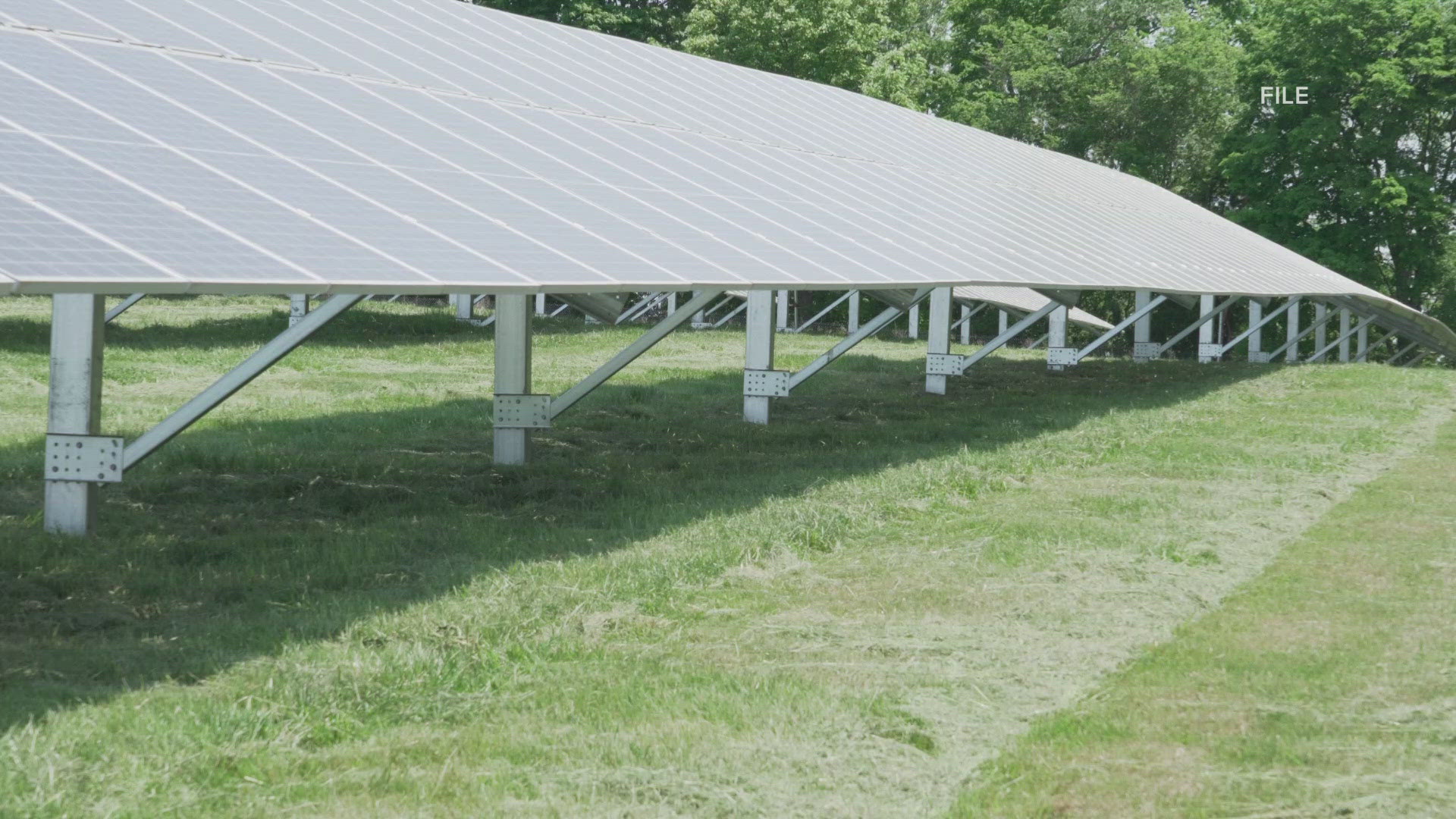CLARK COUNTY, Indiana — Any company that wants to build a solar panel farm in Clark County, Ind. will have to conform to new guidelines passed this week.
The changes require solar projects be more obscured from public view and further away from nearby homes.
"I think you have to start with the premise that you just can't outlaw something because you don't like it," Bryan Glover, president of the Clark County Commissioners, said. "We have to set laws and standards that allow for that to take place, yet still protect the public or their neighbors."
As part of the changes, no more than 4,000 acres of "fenced area" can be devoted to solar energy systems (SES) in the county. All panels and their substations must be fenced-in, and between the fence and the nearest road also has to be a "screen" like continuous vegetation or a manmade berm.
"How do you make the solar puzzle fit in this area?" Glover said.


Solar arrays have to be 650 feet away from the nearest "non-participating" home; as in, the home of a landowner who has not signed an easement.
On Thursday, it was added that solar inverters also have to be 650 feet away from the nearest non-participating home. Power substations also have to be 1,250 feet away from the nearest home.
If a SES has a fenced area over 1,000 feet, a wildlife corridor has to be added.
"All we're asking for is not to cram it at our back door. Three-hundred feet from your house is pretty close. And 650 feet gives us some breathing room," Sandy Basham said, adding that she lives next to someone who has already signed an easement for a solar project.
At least three large-scale solar projects have been denied in the area in the last year. Bright Night was denied a 3,900-acre project in Clark County in October 2023. The company said only 1,000 acres would have panels on them.
This week, Orion Renewable Energy was denied a 3,900-acre project in Jefferson County. Orion said panels would only go 1,800 acres.
"I understand everyone has property rights. I have property rights, and my neighbor does as well. At the 650 they have just approved, my neighbor's property rights have just infringed on mine," Kerri Vaughn said, a Clark County landowner who's been working with Orion for years. Vaughn has been a ring-leader for the pro-solar side in both Clark and Jefferson counties.
Orion has not filed an application for a project in Clark County, but their recent attempt was right on the county line.
Vaughn said she expects Orion to file a new application in Clark County soon.
"Orion has been working with local landowners in the area to develop a project for the last 3+ years that is far less than the new maximum acreage limit," Orion spokesperson Amanda Hoffman said.
Despite Basham saying this week's vote was not "anti-solar", Orion said the road is a lot tougher for them now.
"The changes in the ordinance are extreme responses to concerns regarding solar projects. They certainly make development more difficult in Clark County," Hoffman said.
"I mean, it doesn't say 'no' to solar," Basham said.

